- Home
- Archive -Oct 2009
- Reclaim your po. . .

Reclaim your power
- In :
- Personal Growth
October 2009
By Nandini Murali
Taking back our power is one of the most crucial tasks that confront us on our way to selfhood. how can we ensure that no one can pull our strings and that we retain our right to self-determination?
“Our deepest fear is not that we are inadequate. Our deepest fear is that we are powerful beyond measure. It is our light, not our darkness that most frightens us.”
– Marianne Williamson
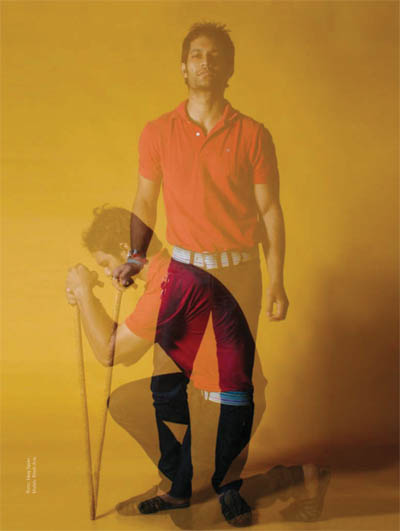 |
The speedboat cruised at Formula One speed along the placid backwaters of Muttukadu lagoon just outside Chennai. As it careened perpendicularly from side to side, I was swamped by an adrenalin high. Absorbed in the moment, my companions and I did not notice that the boat was being insidiously manoeuvred by the boatman.
Who rocked our boat? The boatman, of course! Why? Because, we let him do so, not because he wrenched control from us. In effect, we handed over our power to him. But I was unaware of it then, my clouded mind submitting to the omnipotence of the boatman!
In the centrestage of life, we are actors with infinite choices. Yet in life, as in the boat ride, we often abdicate our power to others either consciously or unconsciously. The speedboat ride was wrapped in a kernel of insight – if we do not create our reality, our reality will create us. Indeed, life and living is all about making conscious choices, not living on default or auto pilot mode.
The power is within you
Ironically, we are born with personal power. It is our birthright. Yet as we grow up, the dos and don’ts of social conditioning impel us to give away our power, although we often don’t realise it. Both women and men are equally vulnerable to loss of personal power. Who or what pulls our strings, makes a difference. Women, for example, may be more vulnerable to loss of power in relationships, while men are likely to feel victimised by their career and work.
We learn our first lessons in power in infancy. As a baby, we learn that winsome behaviours such as smiling and being manageable are sure to win approval, while crying and other ‘offensive behaviours’ are likely to be resented. Gradually as we grow into adulthood, we all too often give away our power to many people and things – our parents, teachers, siblings, spouses, religion, fame, success … most important, we are prisoners of our limiting beliefs and fears. We do so because of our belief that it is a foolproof strategy to win approval and external validation. Indeed, many of us live life with an insatiable appetite for hunger and approval – a psychological bulimia. Devoid of self-worth we seek to fill our emptiness and neediness from the outside world – we become co-dependent in our relationships. The truth is that we own our power and therefore need to retain it. However, we lose sight of this as our awareness is submerged in the ocean of ignorance and non-mindfulness.
Dr Sujatha Rita, Chennai-based HR consultant, says, “We need to own responsibility for ourselves. In its absence, we tend to blame people, and circumstances, and end up playing one of the following roles: rescuer, persecutor, or the victim. Reclaiming our power is all about polishing our awareness.”
We give away our power when we make an external agency – a person, situation, or event, more important than us. We therefore need to own our power in our journey towards authentic living.
“If you do not value who or what you are, you will seek to fill your emptiness from the outside world. All that you need is inside you. No one can know more about your path and purpose than you do, and the power you ascribe to external authorities eventually explodes in your face, leaving you even more defenceless and vulnerable,” writes Alan Cohen in his book, Taking Your Power Back.
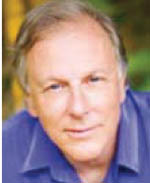 ‘If you do not value who or what ‘If you do not value who or whatyou are, you will seek to fill your emptiness from the outside world.’ |
Using the metaphor of a leaking bucket, Cohen says that we first need to be aware that our bucket has holes through which our power is slipping away and then plug the holes. “You do not need to import power, for you were born with it; you just need to plug the holes in your bucket through which it is leaking. The quest is about peeling away the lies and illusions you have been told – and went on to tell yourself, that have kept you living smaller than you deserve,” he writes.
Dr A Ramanathan, a well-known psychiatrist based in Trichy, says that clients have an inherent ability to discover solutions to their issues. “We (psychiatrists) are helpers, not law-enforcing authorities. The answers lie within the patient.” Dr Ramanathan quotes Antony De Mello, “When God wants to hide something from us, He keeps it right in front of us.”
Taking back your power
As the boat ride taught me by paradox, taking back our personal power does not mean that someone usurped it from us. Rather it means that we gave it away, often unknowingly. At the same time, not all view the strife to regain personal power kindly. People who dare to live life on their own terms are viewed as mavericks, rebels, eccentrics, or just plain selfish. Perhaps this explains the premium society places on ‘adjustment’ (especially in the case of women in developing countries) and following the crowd. The other reason why the process is viewed unfavourably is that people who own their power are no longer pushovers. They are uncomfortable to have around as they question authority, assert their self-respect, and do only what they consciously choose to do. Their awareful behaviour is uncomfortable for those who prefer to operate from the unconscious pulls of manipulation and need, especially if they are used to having control over the other person. The powerlessness of the victim feeds their warped sense of power. Thus, they resist and even sabotage any attempt by the victim to regain power. We need to regain our power both in enlightened self-interest and in the interests of the other, for power not only corrupts the persecutor, but also entrenches both the persecutor and victim in dysfunctionality.
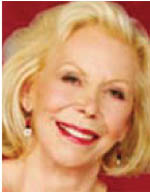 ‘If we play the victum role, we are ‘If we play the victum role, we areusing our personal power to be helpless.’“ |
We far too often compromise…. Compromise… until we eventually lose the real ‘us’ and become a simulated version of us, looks like you and me, but isn’t,” writes Craig Harper in Take Back Your Personal Power. A well-known writer recalls her lopsided power equation with her mother. For years, she struggled with depression and precarious low self-esteem. As she said, she could be “whirled around like a twig by anyone who cared to”.
“My focus, concentration, discipline, self-control were so poor that even executing the ordinary tasks of life were beyond me. My mother took care of my house, supervised the maid, organised the grocery and masalas and even cooked. My extreme dependency on her led to my giving away all my power to her. Although an extremely wonderful and noble woman by nature, the absolute power that she had over me corrupted her until she became used to dominating me, and telling me what to do, criticising me, even treating me with extreme contempt at one point,” says the writer.
The key to reclaiming her power were several facilitative insights that emerged over time. The most important of them were awareness and acceptance – including embracing “some part of my extreme discomfort with myself and the situation. For me taking back my power means regaining my self-determination. It means I am under my own control and that all the strings that tied me to others and to circumstances are cut. I am therefore free to think what I think, and to strike out my own independent path through life without fear of constraint,” she reflects.
Mumbai-based therapist Uma Ranganathan corroborates the writer’s experience of regaining her personal power. “All of us in a broad sense are victims of our conditioning, our past. This state of affairs is likely to continue until we recognise the fact we are victims and start to move beyond this feeling, into a state of independence. One is able to do this through self-awareness,” says Uma Ranganathan. From the perspective of the spiritual big picture, taking back our power involves shifting our consciousness to access the infinity of our Being. A key tool in this process is the concept of surrender consciousness.
“Surrender consciousness is about harvesting the fruits of escaping victim consciousness and harnessing the ego. Surrender is not giving up and giving away power. It is learning to surrender with the flow of energy that is sustaining our being. Surrender consciousness is the doorway to accessing the true breadth of our inherent creativity and birthright,” says K Ferlic in Shifting Consciousness to Access the Infinity of Being. Katherine Keefer, US-based artist, writer, and sculptor, views the process of reclaiming one’s power as surrender to Source and thereby finding balance.
“I would say that it has been an ongoing struggle to move from victim/wife/daughter/mother to balancing individual creativity with demands of life. I also think that for me, at this point, it is not so much reclaiming but surrender to the will of God. Surrender, faith, and trust that God is holding and leading me. I am no longer a wife, and my children are grown. My role is now of a daughter to an ageing mother. It seems to be, for me, about balance,” says Katherine Keefer.
Candle in the wind
For several years, or perhaps, more accurately, for several lifetimes, I had been the archetypal victim. I generously gave away my power, and blamed circumstances and people for “pulling my strings”. Like most people, I sleepwalked through life. It was all “out there” and if only it could be fixed, my life would be perfect. Guilt was my constant companion, a shadow that threatened to blight the Light from my life.
I was a candle in the wind.
Several events in my life were lessons to heal myself, by helping me recognize that we create our reality. One such was a series of surgeries at the base of the spine, the seat of the basic or mooladhara chakra. While modern medicine addressed the physical aspects, there was a hidden message for me: my life was not aligned with my Higher Purpose. The illness was a wake-up call: a classic instance of “biography becoming biology”.
A painful engagement with infertility was another powerful teacher. It was so easy to wallow in a cesspool of self-pity and envy. Living in a patriarchal society where motherhood is equated with fulfilment for a woman, heightened my vulnerability. I was a distraught spider trapped in a self spun cocoon that threatened to obliterate me.
An inspirational book, Childfree after Infertility by Heather Wardell, based on her lived experience of infertility, provided an empowering perspective. According to Wardell, there is a major difference between childless and childfree. Childlessness implies a lack, a feeling of not having control over one’s life because one is unable to have a child.
“To be childfree on the other hand, is also to be without a child. However, the truly childfree person is genuinely happy with life as it stands, and does not feel a lack because there is no child. You have chosen not to have children and have many other things in your life. Since you have made the choice, you do have control over your life and its events,” writes Wardell. Life, I discovered, is a matter of perspective, our unique stained-glass window that colours our worldview.
Blame vs responsibility
We need to distinguish between blame and responsibility. Responsibility as a New Age perspective acknowledges and recognises that thoughts, attitudes, and behaviour influence people’s lives. Does it mean blaming ourselves when things go wrong in our lives? No. It means absolving ourselves of guilt over having caused distressing situations in our lives, but at the same time having sufficient self-awareness to acknowledge and accept that we have indeed contributed towards it.
Louise Hay in The Power is Within You differentiates between responsibility (Response-ABILITY) and self blame: “When I talk about responsibility, I am really talking about having power. Blame is about giving away one’s power. Responsibility gives us power to make changes in our lives. If we play the victim role, we are using our personal power to be helpless. Responsibility is our ability to respond to a situation. We always have a choice.”
Pulling your own strings
People in victim roles carry a baggage of limiting thoughts, beliefs, and attitudes, both in this lifetime and perhaps karmic carryover from earlier lifetimes as well. Their sense of being weak, helpless, meek, and inadequate incline them towards giving away their power, and also prevents them from venturing beyond their comfort zones towards developing skills or new ways of behaviour.
Wayne Dyer in Pulling Your Own Strings talks about the need for a person to have total control of one’s life.
“No one else can live your life, feel what you feel, get into your body, and experience the world the way you do. It is only logical that you should determine how you are going to function, and your functioning ought to bring you the joy and fulfilment of ‘pulling your own strings’ rather than the pain and misery of victimisation,” writes Dyer.
Life, a growth school
I must confess that conventional perspectives to explore the meaninglessness of my life were as futile as a dog chasing its tail. I simply had to drop such fossilised paradigms and adopt a view that had the potential to liberate and heal. The process was painful and fraught with uncertainties. In fact, the hidden messages in my repeat spine surgeries became more insistent each time until it was impossible for me to ignore it any longer. My exploration of a genre of writing, autopathography, or illness narratives based on people’s lived experience of illness was a turning point in my journey. Gradually my narrow tunnel vision began to expand as I began to look inwards. It was exciting as much as it was frightening – certainly a “dark night of the soul” before a spectacular sunrise.
Gradually I sensed that life is a growth school and life experiences are so designed by a compassionate and intelligent Universe to help us evolve. Events happen for a reason, and hence we need to develop an awareness of and receptivity to this Truth. Slowly but surely I began to realise that situations are divinely guided and happen not to us but for us. If we do not learn the lessons, as in my life, events and circumstances keep “recycling” until we ‘pass the test’ and are ready to move on.
Today, nearly six years after my last spine surgery, I am healed and complete. I have also accepted my childfree status with grace, secure in the knowledge that if a desire is not fulfilled, it is for our higher good. This surrender to a higher purpose has flooded me with a peace, serenity and a wisdom that surpasses understanding. Robin Sharma in his book, The Saint, the Surfer and the CEO, endorses my insights: “Everything that happens to you is simply an opportunity to grow and heal a part of you that needs healing.”
According to well-known past life regression therapist Dr Newton Kondaveti, regaining our personal power is about going deep within ourselves and discovering our essence; to tap at our centre of wisdom, love, joy and peace. “Before self-realisation, events just ‘happen’ in our lives. After we have found our Source, we become deliberate creators who consciously create our own reality,” says Dr Newton.
Victim v/s creator
The process of moving from victimhood to a conscious creator is an eventful journey. Progress is often slow and rather imperceptible. However, suddenly a “tipping point” is reached, and there is a quantum leap in consciousness. It is, however, difficult to predict or recognise this critical point, where we transform “hindsight into foresight that revealed insight” except in retrospect.
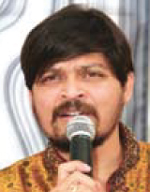 ‘After we have found our Source, we become ‘After we have found our Source, we becomedeliberate creators who consciously create our own reality.’ |
We experience powerful shifts when we decide to switch from victim consciousness to creator consciousness mindset. A victim consciousness is cramped and small. Events and people loom in contrast.
A creator consciousness perception views the world as interdependent. Conscious creators view the world as an extension of themselves. According to Jeff Forte, motivational speaker, conscious creators view the world as their mirror, a reflection of their thoughts, feelings, and the manner in which they flow their ‘source energy’.
Consciously aware creators are adept at the art of manifesting. They do not condemn even the so-called negative events in their lives but instead take full responsibility for them. They then make the necessary change within and continue to enjoy the journey of life. They know that each of their reflections have roots within, so they know there is no sense in ‘shouting at the mirror’ of life, because it is completely ludicrous to ask something to change outside themselves, until they change within, says Jeff Forte.
The first step in moving towards a conscious creator orientation is to intend that we want to do so. Secondly, we also need to make a decision that from this moment onwards we accept complete responsibility for each of our creations. The journey is like a seesaw, one moment we are in victim mode and the next in creator mode. A crucial step in this process is to become consciously aware of the blame games we play. As soon as we do this, we are in witness or observer mode, and this acts as a check to balance our internal seesaw.
Towards creatorhood
Although theoretically the journey from victimhood to creatorhood looks like a linear process, in reality this is far from true. According to Dr Vijay Nagaswami, Chennai based psychiatrist and relationships consultant, an important interim step in the journey from victimhood to the empowered creatorhood is the survival position.
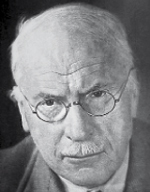 ‘We need to come to terms with our darkness ‘We need to come to terms with our darknessso that we can live in the light.’“ |
When one realises that there are no answers to the ‘Why me?’ conundrum, one then decides whether one continues to play victim or move on to being a survivor. It is very easy to stay in the victim position if the ‘gains’ are substantial,” says Dr Nagaswami.
Staying in the victim position for too long, however, is in itself self-defeating and most people do long to break free. “When this feeling arises is the best time to take professional help and move on to the survivor platform. Having done this, one can bask in the joy of this platform for a while, before moving on to the creatorhood position. It requires all the self-belief and fighting instincts that one has at one’s disposal to break away from victimhood,” adds Dr Nagaswami.
According to Dr Newton Kondaveti, an important factor that perpetuates victimhood is ignorance. Self enquiry, reflection and a commitment to overcoming ignorance are effective strategies in the movement towards creatorhood. Dr Newton believes that “knowledge of the Self is liberation of the Self”.
Reclaiming our power is all about reconnecting with our inner self. Mumbai based therapist Ameeta Shah says that creatorhood is the journey towards wholeness. “Creatorhood is moving from healing ill-health to promoting wellness. It is accepting, and integrating the duality of our existence, the existence in spirit and the existence on the earth. Most of us have parts within us of exceptional creator hood co-existing with the areas of victimhood.”
Karma: Law of cause and effect
Often, the effect of victimhood may be manifested in this lifetime, but its root cause could extend across lifetimes. It is well known that if we have not made peace with our past, it continues to haunt us until we resolve it. A psycho-spiritual perspective views victimhood through the lens of karmic baggage or the law of karma (cause and effect).
“When we see how our past choices and actions have resulted in our present life situations, we begin to understand the law of ‘cause and effect’. We then realise that we are the sole creators of the circumstances and situations in our lives. This truth is the most difficult to accept. However, it is the most empowering realisation. The more we realise that we create our own reality, the more we move away from victimhood and towards creatorhood,” says Dr Newton.
The shadow self
A crucial strategy in reclaiming our power lies in confronting and accepting our shadow self, consisting of all the parts of ourselves that we reject or suppress. The shadow self is a concept introduced by Swiss psychiatrist Carl Jung. In order to be able to see our shadow side(s), we first must take absolute responsibility for our lives. This, however, is far from easy and there are no quick fixes or miracles. As long as we remain dissociated from our shadow, Jung believed we would continue to attract it in events and relationships.
“All people in the world are mirrors, reflecting the brightest and darkest parts of our selves. We need to come to terms with our darkness so that we can live in light,” said Jung. It therefore follows that people who push our buttons – be they our parents, spouse, friends, even our so-called ‘enemies’ who apparently tend to ‘victimise’ us are our greatest teachers.
The realm of the aware ego
Our consciousness, according to Hal and Sidra Stone, consists of three parts: the aware ego, the witness (or observer), and the experience of the primary selves.
When we become aware of the many selves within us and our over identification with a self or selves, we begin to separate from our primary selves and their domination in our lives. This is the awakening of our aware ego. According to Sidra Stone, the “aware ego begins to take over the executive function from our ‘operating ego’, and as it stands between opposites, it begins to make the choices in my life. This does not mean that my life until now has been a series of mistakes, though.” It is the awakening of an independent observer or witness within a person.
The aware ego is separated from but can synthesise and make use of all the information and guidance of the primary selves. Taking back our power is about standing between opposites; secure in the knowledge that both are equally valid. The challenge then is for us to view a problem not as “an either/or proposition” but in an inclusive “and” perspective. When we do so, we move past dualistic thinking to a state of equipoise and balance.
The journey to reclaiming our power is about unconditional acceptance, both of the self and others. It is living our lives free of power, a two-way surrender – neither giving away our power nor exerting it over another. The process is a journey, not a destination….
To read more such articles on personal growth, inspirations and positivity, subscribe to our digital magazine at subscribe here
Life Positive follows a stringent review publishing mechanism. Every review received undergoes -
- 1. A mobile number and email ID verification check
- 2. Analysis by our seeker happiness team to double check for authenticity
- 3. Cross-checking, if required, by speaking to the seeker posting the review
Only after we're satisfied about the authenticity of a review is it allowed to go live on our website
Our award winning customer care team is available from 9 a.m to 9 p.m everyday
The Life Positive seal of trust implies:-
-
Standards guarantee:
All our healers and therapists undergo training and/or certification from authorized bodies before becoming professionals. They have a minimum professional experience of one year
-
Genuineness guarantee:
All our healers and therapists are genuinely passionate about doing service. They do their very best to help seekers (patients) live better lives.
-
Payment security:
All payments made to our healers are secure up to the point wherein if any session is paid for, it will be honoured dutifully and delivered promptly
-
Anonymity guarantee:
Every seekers (patients) details will always remain 100% confidential and will never be disclosed
